Fermented Foods---What’s the Big Deal?
Well first, what are they? I didn’t really know, so research was needed. Here’s what Katie, the Wellness Mama (www.wellnessmama.com), explained:
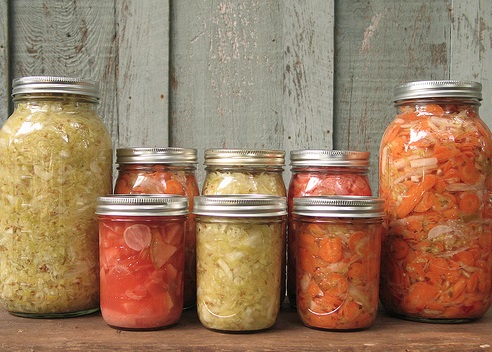
“They’re foods that have been through a process of lacto-fermentation; natural bacteria feed on the sugar and starch in the food creating lactic acid. This process preserves the food, and creates beneficial enzymes, b-vitamins, Omega-3 fatty acids, and various strains of probiotics.
“And natural fermentation of food preserves nutrients and breaks the food down to a more digestible form. This, along with an abundance of probiotics created during the fermentation process, explains the link between consumption of fermented foods and improved digestion.
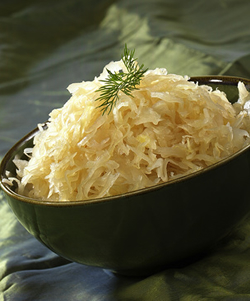
“People throughout the world have been eating fermented foods for generations (think of Germany’s sauerkraut and Korea’s kimchi, for example). Even though science has proven the link between probiotic rich foods and overall health, the “advances” in technology and food preparation, these time-honored traditional foods have been largely lost in our society.”
And where have they gone? “The amount of probiotics and enzymes available in the average diet has declined sharply over the last few decades as pasteurized milk has replaced raw milk, pasteurized yogurt has replaced homemade yogurt, vinegar-based pickles and sauerkraut have replaced traditional lacto-fermented versions…the list goes on.
“Even today’s much dreaded grains were safer to eat in earlier times since their preparation included soaking, sprouting, and fermenting, which largely reduces the anti-nutrient content.
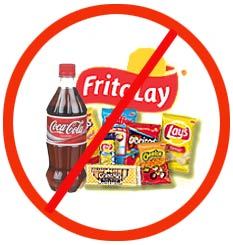
“Instead of the nutrient-rich foods full of enzymes and probiotics that our grandparents ate, the average diet today consists mainly of sugar laden, lab-created dead foods.”
So what’s the big deal with fermented foods---why eat them? The Wellness Mama explains that besides the fact that they taste great and really grow on you, there are four excellent reasons to make and eat them:
Probiotics: Eating fermented foods and drinking fermented drinks like Kefir and Kombucha introduce beneficial bacteria into the digestive system and help balance it. Thus probiotics aid digestion and also help slow or reverse some diseases, improve bowel health, and improve immunity!
Absorb Food Better: Having the proper balance of gut bacteria and enough digestive enzymes means you absorb more of the nutrients in the foods you eat. Pair this with a healthy and real food diet, and nutrient absorption increases dramatically. You won’t need as many supplements and vitamins, and you’ll be absorbing more of the live nutrients in your foods.
Budget Friendly: Fermented foods are affordable. For instance, you can make your own whey at home for a couple of dollars, and combining that with sea salt, means you can ferment many foods very inexpensively. And while they take a little time to ferment, water kefir and kombucha are easy to make and cost only pennies per serving. And as mentioned, adding these things to your diet also minimizes the amount of supplements you need, helping the budget further.
Preserves Food Easily: Homemade salsa only lasts a few days in the fridge; fermented homemade salsa lasts months! The same goes for sauerkraut, pickles, beets, and other garden foods. Lacto-fermentation allows you to store these foods for longer periods of time without losing the nutrients like you would with traditional canning.
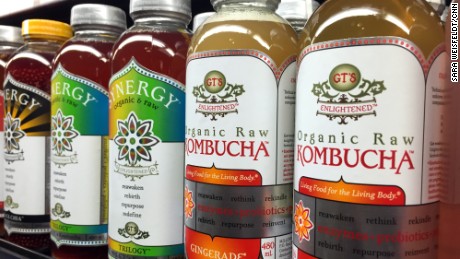
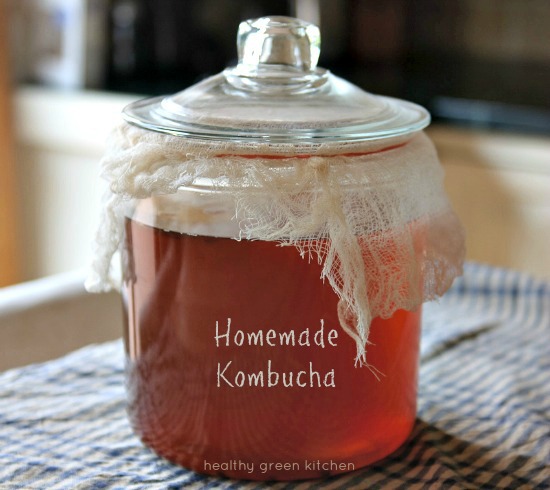
So bring on the bacteria! On a basic level, you can make foods like sauerkraut with just cabbage, water and salt. Then there’s fermented drinks such as delicious kombucha and water kefir. Store boughts are expensive, so get some inexpensive cultures (available at whole foods stores and online) and make your own! They can even be flavored and carbonated like soda. The Kitchen (www.thekitchn.com, a favorite online cooking site) has a good tutorial on how to make your own kombucha starter, and here are a few good online sites that sell these cultures are:
www.kevita.com/kombucha
www.culturesforhealth.com/kombucha
www.amazon.com
www.koalabarefoods.com.au/live-organic-kombucha-scoby-starter-tea/
We’d love it if you would share your tips and any recipes for fermented foods, if you already do this. But in case you’re still unsure, here’s a recipe for homemade, fermented salsa (and much thanks to Katie, our Wellness Mama for this inspiration). Give it a try and see if you don’t become a fermented foods fan:
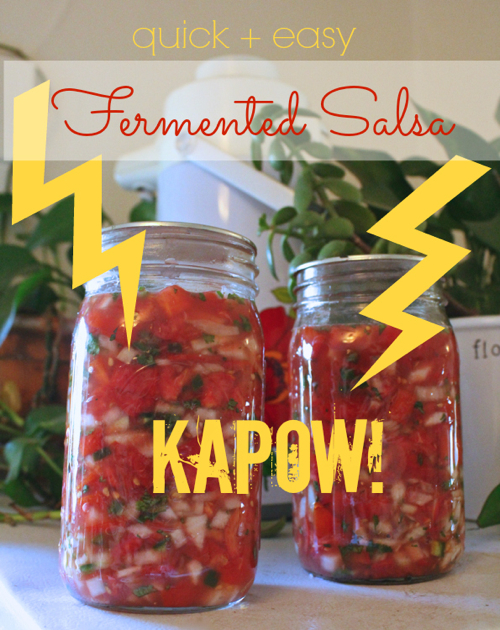
FERMENTED SALSA (serves 6)
2 ½ -3 pounds tomatoes (of choice)
1-2 onions
4 (or more) cloves of garlic, minced
Fresh cilantro to taste (½ cup or more)
1 medium lemon, juiced
1 lime, juiced
2 tablespoon sea or celtic salt
Spices to taste (oregano, pepper, cumin, chili, and cayenne)
Peppers (sweet or spicy—cayenne and habanero; sweet peppers work great too if you don't like spicy)
½ cup whey
Chop tomatoes, peppers, onion and cilantro and mince garlic. If you have a food processor, your could definitely use it to speed up this step!
Toss all ingredients into large bowl
Add the juice of the lemon and lime
Add salt and spices to taste
Add whey and stir well to incorporate.
Pour into quart of half gallon size mason jars and cap tightly.
Leave on the counter for approximately 2 days.
Transfer to fridge or cold storage (cellar or basement, for instance)
A Fast and Easy Tip: If you don’t have the time or ingredients to make your own salsa, you can get the benefits of fermented salsa by fermenting store bought salsa as well. If possible, use the fresh made salsas in the refrigerated section, but you can ferment canned versions also.
- www.germanfoodguide.com
- www.namastenutrition.net
- www.cnn.com
- www.wellandgood.com
- www.bonzaiaphrodite.com
 Alice Osborne
Alice Osborne
Weekly Newsletter Contributor since 2006
Email the author! alice@dvo.com
